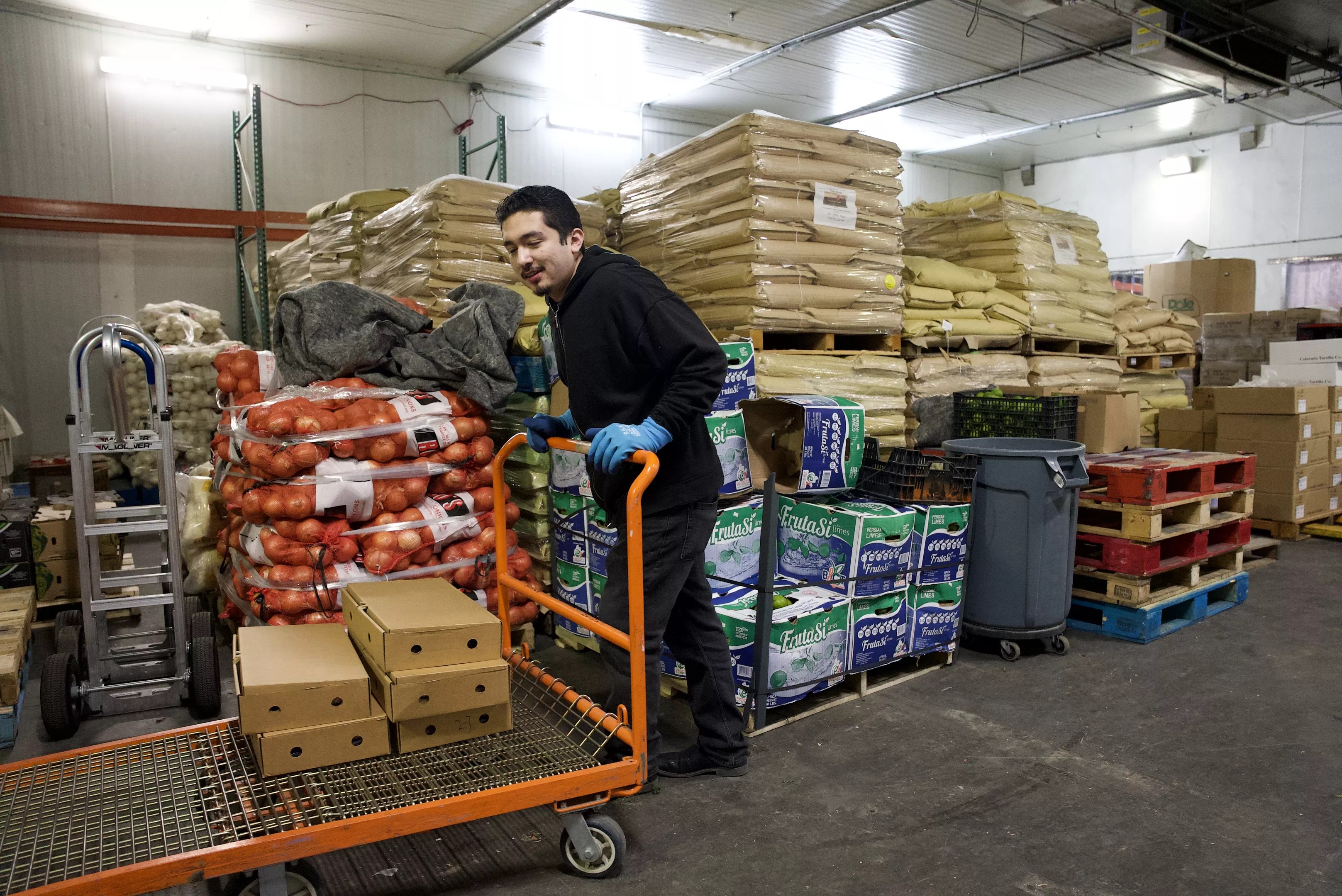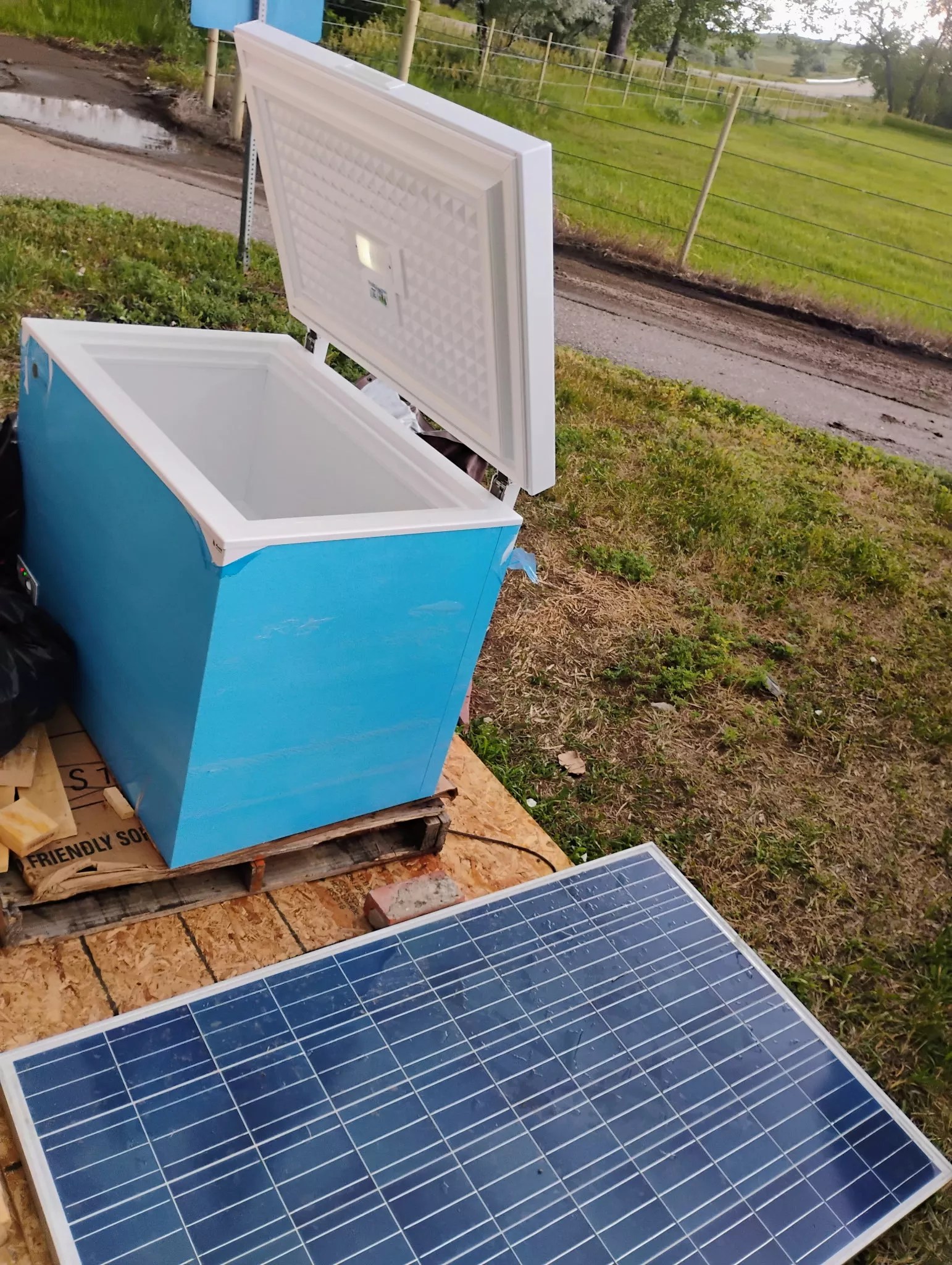
Roberto Meza

Audio By Carbonatix
At a time when government funding is under DOGE-y scrutiny for alleged fraud, waste and abuse, Colorado State University was proud to recently announce that its Northwest and Rocky Mountain Regional Food Business Center had awarded $2 million in federal grants across Colorado, the Rocky Mountain West and the Pacific Northwest under its Business Builder Grant Program. The funding went to 116 small and medium-size farm and food business projects, many of which focus on providing food for underprivileged and underserved communities. The recipients include 38 Colorado businesses, totaling $440,000; the center will eventually distribute a total of $6.75 million in Business Builder Grant Funding.
Launched in 2023, the program – which covers Colorado, Idaho, Montana, Oregon, Washington and Wyoming – is one of twelve regional food centers created by the USDA to support regional collaboration and funding opportunities for food and farm businesses.
“One of the most exciting opportunities the center allows us is the chance to invest in innovative farms and food companies,” says Dawn Thilmany, director of the Northwest and Rocky Mountain Regional Food Business Center and a CSU professor in the Department of Agricultural and Resource Economics. “We have spent years providing education and technical assistance, hoping it set managers up for success, but now we can finance and seed their clever strategies and plans they created in our programs.”
In Colorado, grants were awarded to metro Denver projects as well as several spread across rural Colorado. For example, the Ray Family Farm in Yuma County is investing in a frozen-meat vending machine to provide easier access to locally sourced pork; a dairy in Montrose County will expand production, offering additional fresh, pasture-raised milk to meet demand in underserved communities; and the Pueblo Seed and Food Company aims to expand distribution of drought-hardy organic grains and legumes, preserving water-efficient crop varieties, through branded packaging and expanding milling capacity.
Grants were also awarded to projects in the five other states.
Thilmany admits there’s been some nervousness over the slashing of federal government funding and even dismantling of agencies and programs. But she notes that the money CSU just distributed was approved after President Donald Trump was sworn in. “The good news is it was this administration that approved these grants,” she says. “They certainly could come back and still say they want to revisit other aspects of the center, but they can’t say this isn’t a decision made under their predecessor, because these were just approved in the last six weeks.”

The team at Hearty Provisions, formerly known as East Denver Food Hub. CEO Roberto Meza is fifth from right.
Roberto Meza
Roberto Meza, CEO of Hearty Provisions, formerly known as East Denver Food Hub, is a recipient of a $10,000 grant (the largest amount applicants could receive), is grateful for the funding and the program itself, which includes small business and non-profit training webinars. The funds would be used to “relocate to a central warehouse to improve logistics, expand markets, and increase efficiency,” according to its application. Partnering with a Denver-based nonprofit called the Ag and Food Lab, the organization will integrate food justice education and discount programs, boosting farmer access and operational sustainability.
“What we do is work with farmers, producers, ranchers, and align their needs and their products with customers in the community, whether they’re nonprofit food pantries that want to feed their communities, or whether they’re school districts, a nutrition partner or a food service company,” Meza explains. “So we differentiate ourselves from a regular distributor by being open and transparent about what we’re doing to improve the local food system, not just move food, but really see what it could be as a benefit to all communities.”
That sounds like a lofty goal, and “yeah, it is,” he agrees. “And it’s also quite simple. It’s really about communicating and being transparent. And it’s not always about the bottom line.”
The organization launched in the summer of 2020 to connect food producers with institutions during the pandemic. “That had such a profound impact on our awareness of the challenges and opportunities to create something more sustainable. And over the last, I would say, really, two to three years, we’ve scaled what we learned during that time to meet larger volume institutions, hospitals and schools, so that they’re not just purchasing food, they’re actively participating in supporting values-based food procurement.”
The grant will help the organization with its rebranding and execution of a new website to better communicate with all of Hearty Provision’s stakeholders.
Though Meza is certainly aware of the federal cuts to various programs, he’s not worrying about it, though he admits his rebranding avoids the use of words like “diversity” and “equity.”
“I don’t know what impact that’s going to have overall on our understanding and awareness of what we’re doing,” he says. “But this is work that has to continue, regardless of the political climate, the changes in our administration. I think now more than ever, we have to be much more strategic and tactful into how we’re providing the value to our community of local farmers and to our customers.”

Friends Farm used the grant to purchase a refrigerator and solar panel to bring the chill for its farm stand.
Oliver Aurand
Oliver Aurand of Friends Farm in Boulder received a $9,989.97 grant (someone told him he’d be more likely to get a grant if he requested less than the full amount) to help pay for a solar setup for a solar-powered farm stand in Louisville that he would operate with over 100 co-op members, including farmers and volunteers. The electricity generated would operate refrigeration for keeping produce fresh.
“The co-op is kind of bringing together different groups and trying to energize them a little bit and have that kind of shared marketing,” Aurand say of the co-op, which is less than two years old. Aurand didn’t grow up farming – he studied anthropology and got the farming bug by researching foodways. He grows vegetables and herbs, he says, “and I’m getting into the medicinal herbs as well, and branching out into a little bit of berries.”
The solar setup from the grant will make it possible to make the farm stand self-sustaining. “We have the chest fridge that is designed to run directly off of solar panels, so it’ll be self-contained and less costly” than looking for an outlet everywhere they set up, he says. “And it can be kind of off grid, put like a light and a USB charger in there too.”
The goal is to come up with low-cost solutions to running an operation like the stand and then showing others how they can do it, too.
Other local grant recipients:
Common Harvest Colorado, Denver ($6,945)
GoFarm, Golden ($10,000)
Grama Grass and Livestock LLC, Longmont ($10,000)
La Victoria Incubator Kitchen, Aurora ($9,952)
Paper Kite Farm, Golden ($3,794.34)
Primitive Beer, Wheat Ridge ($9752.02)
R&B’s Mo Bette Green Marketplace, Denver ($10,000)
Sohai Farm & Kitchen, Thornton ($10,000)
Find more information about the USDA Northwest & Rocky Mountain Regional Food Business Center at nwrockymountainregionalfoodbusiness.com.